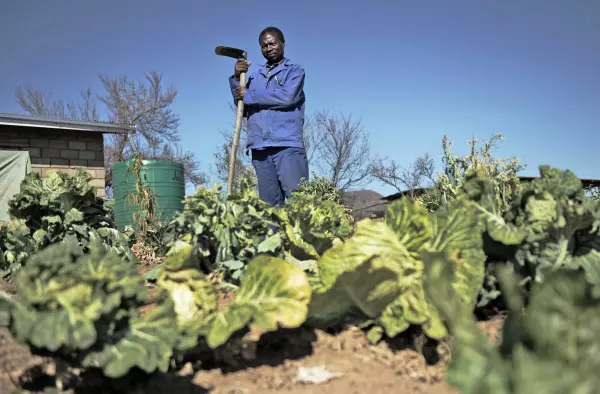Africa’s agriculture influencers are not letting any bad energy, bad economy, or bad weather stand in the way of their drive to keep punching. The continent has had its fair share of social, political and economic hardships, and added to that, the climate crisis has escalated the need for food production to secure livelihood.
However, this has not dampened the spirits of agriculture influencers – men and women who seek to take farming and agriculture to another level despite all the bad press the continent has hogged. Some of these influencers could well be said to be punching above their weight, but one thing is clear: They won’t go down without a fight. High on the agenda is the drive to make the coming year an opportunity to prove that the past does not necessarily determine the future.
With a somewhat bleak and mixed bag 2023, the beckoning year offers a chance to regroup and make the best of the projects they have pursued with different outcomes. African governments and agriculture ministries are ever on the lookout for success stories from young farmers to market agriculture as the new business frontier for youthful entrepreneurs, but while such success stories do exist, the failures also exist alongside those triumphs.
It is such false steps that have seen a slow uptake of farming among youths, as influencers and agriculture ministry officials across the continent agree. However, influencers who have taken to various social media platforms to showcase their projects have always stressed the same thing: agriculture or farming is not for get-rich-quick types, and this means slugging it out against heavy hitters backed by buckets full of agriculture finance.
Stories of failure and heartbreak became normal in 2023 – as is normal in any business endeavour – and a browse through social media feeds of young farmers tells stories of how difficult it has been to make things work. Yet these young influencers agree that in agriculture things do not always work out as planned. Those who fared better were and remain at hand to offer how-to and how-not-to tips.
On Facebook, platforms such as Africa Farmers Club with more than 200 000 followers, have become a marketplace of ideas, transcending time and space to connect the continent’s agri entrepreneurs. It is here where agriculture influencers have found their niche, and ahead of the new year, farming advice has become even more pertinent. African Farming.com has more than 141 000 followers on Facebook and is one of the premier places for young and old farmers to share their knowledge. Farm Africa has more than 20 000 Facebook followers, while Instagram boasts more than 4500 followers, establishing a network of influencers eager to contribute to the continent’s food production efforts. The Network of Asian and African Agriculture Professionals (NAAP) has over 12 000 Facebook members and its stated goal is to “synergise person-to-person relationships between Asian and African professionals to promote entrepreneurship and crowdsource knowledge and technology dissemination in the agriculture sector in Africa”.

Women are increasingly turning to influencers on social media advice. Source: FAO
While agriculture influencers have taken to Facebook in their numbers, they can also be found on X, formerly Twitter, sharing their activities amid the attendant hardships that have cowed both established and aspiring farmers.
Accounts such as Asante Veterinary Consultants which specialise in livestock farming, have thousands of interactions and have advised farmers about the need for vigilance in the coming year. Livestock is one of the most difficult enterprises as losses can lead to a total shutdown of operations.
Another influencer who goes by the handle @CTRIG.SOL declared in a recent post: “Farmers, start your engines. Season 3 is here and I’m more determined than ever.”
It is one of many examples of how influencers are refusing to let a bad year decide the future of African agriculture. Individuals and stand-alone organisations are driven by a passion to make the best of the continent’s vast arable land.
Even as African countries emerge from COP28 where influencers have also been vocal about rich countries remaining slow in meeting their financial obligations to poor developing countries, the new year does not promise any change of fortunes regarding the bleak climate forecasts.









